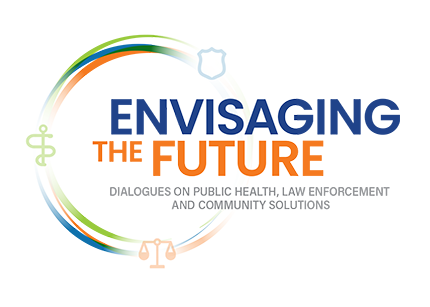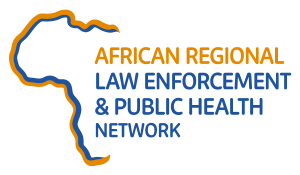
Compulsory Drug Treatment and Rehabilitation, Health, and Human Rights
Guest Editors: Claudia Stoicescu, Karen Peters, and Quinten Lataire
The involuntary commitment or compulsory detention of individuals in the name of drug dependence treatment and rehabilitation persists as a common aspect of drug control in a range of settings around the world. Compulsory treatment and rehabilitation, which often occurs without sufficient due process, legal safeguards, or judicial review, continues to be implemented, and scaled up, despite repeated calls by the United Nations to permanently close and immediately release people held in compulsory facilities for people who use drugs because of their violation of human rights.[1] Accumulating evidence demonstrates their ineffectiveness across a range of health, social, and economic outcomes, including the lack of effective treatment for drug dependence, harm reduction, and HIV and viral hepatitis prevention, treatment, and care services. Calls to close down such facilities were reinforced by the July 2021 study of the Working Group on Arbitrary Detention, Office of the High Commissioner on Human Rights. The study documenting wide-ranging health and human rights violations in drug detention facilities in several countries, including “deaths…due to severe beatings”, “painful, unmedicated withdrawal, beatings, military drills, verbal abuse, and sometimes scientific experimentation without informed consent” and “forced labour”.[2]
It is now widely acknowledged that structural determinants such as economic disadvantage, stigma and discrimination, unemployment, inadequate housing, community disempowerment, and criminalizing laws and policies shape risks associated with and inform responses to drug use and dependence. The 2030 Agenda for Sustainable Development promotes the prioritization of people, health, and human rights. In order to attain these goals, evidence-based drug policy-making is a necessary enabler of sustainable development across all income levels. In support of the Sustainable Development Goals, the United Nations common position on drug-related matters adopted in November 2018 by 31 United Nations agencies urges countries to reform and repeal “laws, policies and practices that threaten the health and human rights of people”, including compulsory treatment and rehabilitation. In March 2019, the UNODC-led United Nations System Coordination Task Team on the Implementation of the UN Common Position concluded that “a major obstacle to accessibility of treatment is the criminalization of personal use and possession of drugs for other than medical and scientific purposes” and unambiguously encouraged states to promote alternatives to conviction and punishment including the decriminalization of drug possession for personal use, and promotion of the principle of proportionality.
In response to allegations of rights violations and as part of efforts to enhance their structural responses to drug use and dependence, several countries have made commitments to transition from compulsory responses to drug use and dependence toward community-based treatment approaches. This approach refers to a continuum of services from community outreach, brief interventions, and psychosocial counselling to rehabilitation and social reintegration provided in the community to meet individuals where they are at and address the spectrum of issues that they may face.[3] In particular, at the Third Regional Consultation on Compulsory Facilities for People Who Use Drugs in East and Southeast Asia in 2015, countries acknowledged the need to support voluntary community-based treatment, harm reduction and support services through the implementation of a transitional framework consisting of three pillars of (1) establishing national multi-sectoral transition committee and action plans to instigate the transition; (2) reforming drug laws to foster an enabling policy environment, and (3) strengthening resilience, building capacity, and adequately resourcing health systems.[4] Despite these rhetorical commitments, the transition from compulsory drug treatment to community-based alternatives has been slow, with voluntary community-based responses to drug dependence emerging in parallel to, rather than replacing, compulsory systems in many settings.
Critical analysis on the effectiveness, cost-effectiveness, and human rights implications of compulsory and voluntary drug dependence treatment in low- and middle-income settings is needed to inform policy-making and accelerate a decisive shift away from punitive approaches to drug dependence treatment. Such evidence is especially urgent at this crucial juncture when many countries are starting to acknowledge the failure of zero-tolerance responses and their impact on society, in particular on prison overcrowding. At the same time, the UN Common Position has created unprecedented momentum for shifting global discourse and approaching drug-related issues from health, sustainable development, and human rights perspectives.
This special section aims to examine and characterize at regional, national, or institutional levels the current use and human rights consequences of involuntary commitment or compulsory detention of people who use drugs and the development of voluntary, community-based alternatives. We welcome papers that examine advocacy efforts seeking to expedite the transition from compulsory treatment and rehabilitation modalities toward voluntary community-based responses. We invite contributions spanning cross-cutting themes such as international law, harm reduction and health promotion, medical ethics, alternatives to conviction and punishment for drug-related offences, and criminal justice. We are particularly interested in papers that go beyond describing existing harms associated with compulsory treatment to identifying critical leverage points and structural factors that could address the most pressing challenges to the expansion of voluntary evidence- and rights-based services.
While not an exhaustive list, we welcome multidisciplinary contributions that address the following topics in relation to the obligations of states and the rights of people who use drugs:
- Country case studies on national experiences of transitioning from compulsory drug treatment and rehabilitation and promising voluntary alternatives
- Evaluations and case studies of fidelity in the practice of voluntary, community-based treatment programmes
- How international frameworks and global organizations address, or can better address, health and human rights issues related to compulsory treatment and rehabilitation
- Critical commentaries on the definition and indicators related to compulsory and voluntary drug dependence treatment
- Applying international human rights standards to compulsory drug treatment and rehabilitation
- Strategic litigation around compulsory drug treatment and rehabilitation
- Evidence-based drug treatment for people with dependence on stimulants, particularly amphetamine-type substances
- Evidence-based treatment and care services as alternatives to conviction and punishment
- Establishing evidence-based drug thresholds; effectiveness and cost-effectiveness studies of compulsory and/or voluntary community-based drug dependence treatment; analysis of health and human rights implications related to private and other non-state-run facilities that employ compulsory and punitive modalities.
Submission details
- Papers must be submitted by 31 January 2022
- Full papers have a maximum word length of 7,000 words, including references. We also invite Perspective Essays of up to 3000 words, including references, and Viewpoints of between 900-1500 words, including references, on this topic.
- Author guidelines are available here.






